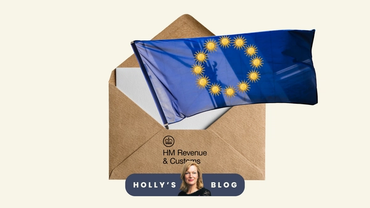US Election 2024: What the Trump victory means for your money
By Boring Money
7 Nov, 2024
The 2024 US election has come and gone, but its implications are only just beginning to unfold. With the prospect of another four years of President Donald Trump, and a political landscape marred by both familiar and unexpected challenges, the results are sure to influence not just American politics, but the broader global economy as well.

In this article, we'll break down what the outcome of the US election means for your money - whether you're an investor, a business owner, or simply a concerned citizen. Understanding the financial consequences of the 2024 election is more important now than ever. Here's what you need to know.
Stock markets and investor sentiment
Under Trump’s first term, the US stock market saw significant growth, with the S&P 500 climbing by nearly 60%.[1] Trump’s pro-business stance, along with corporate tax cuts and deregulation efforts, helped lift markets and boost investor sentiment. So, would a second term deliver more of the same?
The answer depends largely on the continuation of policies that promote business growth. Trump's administration has historically been a fan of cutting regulations, especially in industries like energy, healthcare, and finance, and we’re likely to see a continuation of this in his next term. He has already pledged sweeping tax cuts – including reducing corporation tax, abolishing tax on social security payments and making tips tax-free. Deregulation efforts like this are likely to be well-received by major industries such as energy and banking.
“Trump historically doesn’t like regulation or corporation tax so could be seen as positive for financials and defence. Maybe even the tech giants for whom increased regulation is an ongoing risk,” explains Holly Mackay, Founder & CEO at Boring Money. “Oil stocks and Tesla, owned by Trump’s new best friend Mr Musk, will also likely benefit. And Bitcoin has reached all-time highs – Trump is seen as a supportive force here.”
However, his trademark unpredictability could also lead to market volatility. Trade wars, foreign relations tensions, and domestic policy changes are all factors that could cause uncertainty. One of the most controversial of his campaign pledges is the proposal of new tariffs of at least 10% on most foreign goods, and an eye-watering additional 60% tariff on imported goods from China. Some economists have warned this could hike prices and fuel inflation, just as it appears to be returning to the Federal Reserve’s (the Fed’s) 2% target.[2]
Nevertheless, markets appear pretty happy so far with the prospect of another four years of Trump, with the S&P 500 recording its best post-election day in history.[3] The yield on Treasury (US government) bonds - a key benchmark for the health of the global financial system - rose by about a fifth of a percentage point to almost 4.5% for 10-year borrowing, while the dollar surged at its fastest rate in 2 years.[4][5] Even here in the UK, the FTSE 100 initially rose over 1.5% on the news Trump had won - although it slipped later in the day as the results sunk in.[6]
“Although I typically ignore short-term noise, I do expect markets to respond positively to Trump’s victory,” Holly adds. “The bigger question is with valuations already very high, if things rise higher, what will 2025 bring? I anticipate a volatile 6 months as we move into next year.”
Inflation and interest rates
Trump’s promise of tax cuts and higher government spending could boost consumer demand and lead to inflation. While tax cuts stimulate spending and investment, they also increase demand for goods and services, which can drive prices up if supply doesn’t keep pace. Additionally, Trump’s trade policies - particularly his proposed tariffs - could raise the cost of imports, which would almost certainly trickle down to higher consumer prices. For example, a 60% tariff on goods from China could increase the cost of electronics and clothing – both key considerations when calculating inflation.
“A key word which Trump loves is ‘tariffs’ – which can translate through to increased price tags on goods, hence higher inflation,” Holly says. “If people anticipate higher inflation, longer term interest rate forecasts go up and the yields on longer-terms bonds also rise. This leads to what economists call a ‘steepening curve’ – you get relatively more for longer-term loans than shorter-term ones. This change in the US could impact global bond markets.”
If this does materialise and inflation goes up, the Fed may respond by raising interest rates to prevent the US economy from overheating. Higher interest rates make borrowing more expensive, which can reduce consumer spending and business investment, helping to control inflation. Additionally, increased government borrowing to finance tax cuts and spending could also put upward pressure on interest rates, as the government competes for credit in the bond market. While Trump has expressed a preference for lower rates to support economic growth, the Fed’s main priority is controlling inflation, which may mean it is forced to raise rates – or keep them higher for longer – if inflationary pressures persist.
All in all, another Trump presidency could mean the next four years will see higher inflation and potentially higher interest rates, depending on the balance between his economic policies and the Fed’s response. This could impact Brits all the way across the pond, as the Fed’s interest rate policy helps to guide that of our own Bank of England (BoE), which may have to retain higher interest rates and thus keep the cost of borrowing higher than it otherwise might be. In other words, mortgage rates could stay higher for longer – although savers may get to enjoy more generous interest rates at the same time.
Key areas of concern for UK investors
1. Many investors have high exposure to US markets
If you’ve got an ISA or a pension, chances are you’ll have a pretty high exposure to the US stock market, as it’s one of the largest and most established in the world. It attracts by far the most investment from UK investors, making up almost one-third of total investment (31%) and more than three times the amount UK investors invest in France (9%), followed by Germany (7%), the Netherlands (6%), Japan (5%) and Luxembourg (3%).[7]
Chris Iggo, Chief Investment Officer for Core Investments and Chair of the AXA IM Investment Institute, said that a typical client Q&A at the moment is dominated by concerns about the US economy and, in particular, its concentration in tech stocks.[8] Indeed, a Boring Money reader recently responded to a survey about their financial concerns, saying: “My main holdings are in the US tech sector, so I'm concerned about this possible over-exposure and weakness of the US market”.[9]
2. Opportunities and challenges ahead for tech stocks
Homing in on this superstar sector, we could see both positive and negative effects under another Trump presidency. This area is a key concern for UK investors, with 23% of respondents to our survey saying that concentration of US tech stocks is their main investing concern right now.[10]
On the one hand, Trump has been supportive of the tech industry, particularly with tax incentives for companies investing in research and development. And he’s recently made a new buddy in Tesla’s Elon Musk. However, his trade war with China, which dominated headlines throughout his previous presidency, and his stance on restricting Chinese tech companies (like Huawei) could create risks for global tech stocks.
So UK investors with tech-heavy portfolios might face increased volatility due to supply chain disruptions, hefty tariffs, or regulatory challenges affecting companies like Apple, Microsoft, and Amazon. In the long run, if you’re invested in US tech stocks, you need to weigh up the benefits of a deregulated, business-friendly environment against the risks of geopolitical tensions and policy changes.
3. Potential for geo-political tensions and upset
As we've discussed, Trump’s historic tendency to engage in trade wars could destabilise global markets, so UK investors with exposure to international trade or Chinese markets may see their portfolio take a dip. Additionally, his promise of an even stronger focus on economic nationalism could lead to disruptions in global supply chains, which may negatively impact UK firms with US operations or exports.
Meanwhile, Trump’s less supportive stance toward European alliances and institutions like NATO could lead to increased geopolitical risk across Europe. This uncertainty could affect UK investors in sectors sensitive to regional stability - such as defence, energy, and infrastructure. On top of this, increased tensions in Europe (for instance, in the event that the US retracts some or all of its NATO funding) could spur market volatility, further compounding the risk that investors encounter less-than-stellar performance.
4. ESG and sustainable investments likely to suffer
Trump has generally been less focused on environmental, social, and governance (ESG) issues compared to some of his political counterparts. During his first term, he rolled back numerous environmental regulations - including the Paris Agreement - aimed at reducing carbon emissions and addressing climate change. Although his successor President Biden attempted to reverse some of these measures, it’s widely expected that Trump will double down on his original pledges.
Over the next few years, investors may see even less emphasis on green energy, sustainability initiatives, and climate-related disclosures, as Trump seeks to prioritise America’s domestic economy and labour market. This could impact ESG-focused funds that prioritise these areas, as policy changes might hinder progress toward sustainability goals. If so, UK investors pursuing sustainable investments may see fewer opportunities in the US market, especially for sectors like renewable energy and sustainable infrastructure.
On the flip side, Trump’s business-friendly policies, such as deregulation and tax cuts, could benefit the social and governance components of ESG investing, particularly in sectors like tech and finance. Companies that focus on innovation, diversity, and corporate governance may still offer attractive returns, even if the environmental aspect of ESG takes a backseat under another Trump presidency.
The verdict on Trump... again
So what’s the long and short of it all? Trump will not officially take office until he's sworn in at the presidential inauguration ceremony on 20 January 2025, at which point he legally assumes the power and responsibilities of the president.
Until this moment, most of this is conjecture. It’s still far too early to tell how a second Trump presidency will turn out or how it could impact your investments. UK investors may experience both opportunities and risks due to shifts in US policy, global trade dynamics, and market volatility. Here’s a recap of the main questions we’ll be asking as we prepare for a further four fascinating years of President Trump:
Will US stocks lavish Trump’s pro-business policies?
Will the tech sector suffer at the hands of his anti-China campaign?
Will his often-controversial behaviour spook markets?
Will his America First approach compromise European economies?
Will his anti-ESG rhetoric strain the sustainable investment industry?
So UK investors could see various impacts on their portfolios, so it would be wise to prepare for both opportunities and risks in the years ahead. As Holly emphasized, it’s likely to be a volatile 6 months or so as the world settles into Trump Round 2, but it’s still too early to say what the full four years have in store just yet.
Buckle up, everyone!
---
[2] US Bureau of Labor Statistics, October 2024
[3] Yahoo Finance, November 2024
[5] Financial Times, November 2024
[7] Office for National Statistics, November 2018
[9] Boring Money, August 2024
[10] Boring Money, August 2024





